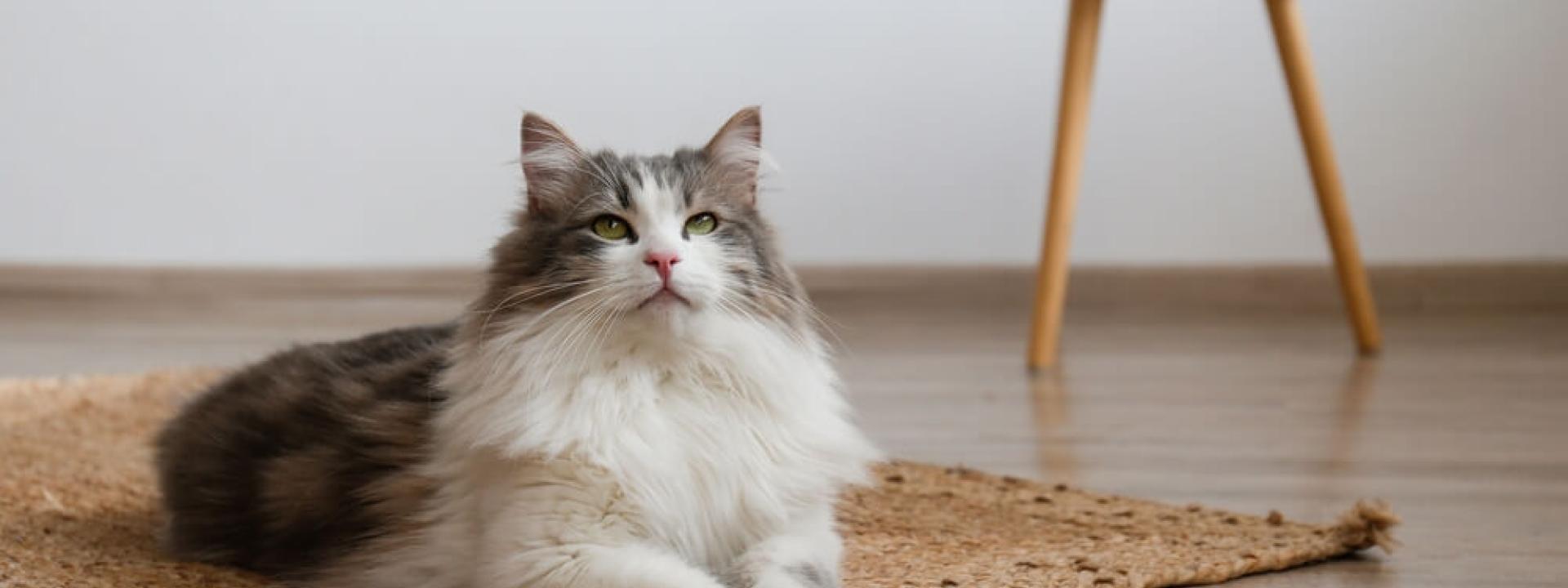
Happy Cat Month—celebrated every September—is a wonderful opportunity to focus on the joy and well-being of our feline friends. Cats are complex creatures with unique needs and preferences, and ensuring their happiness involves more than simply providing food and shelter. Here’s a guide from the Tennessee Avenue Animal Hospital team to help you ensure every day is purr-fect for your cat.
Build a cat paradise
Cats are natural hunters and explorers, and their environment should encourage these traits. Cats who can express their natural behaviors are generally more satisfied and less prone to stress. Make your cat’s space more engaging with simple additions and modifications, such as:
- Interactive toys — Toys that stimulate your cat’s natural hunting instincts and keep them entertained and mentally stimulated include wand toys, laser pointers, and treat-dispensing toys.
- Cat trees and scratching posts — Provide vertical spaces like cat trees and scratching posts. These not only satisfy your cat’s scratching instincts but also offer climbing and perching opportunities that mimic their natural behaviors.
- Puzzle feeders — Serve your cat’s meals in puzzle feeders and food-dispensing toys, which encourage problem-solving and promote healthier eating habits.
Feed your cat for health and longevity
Nutrition and hydration are the building blocks for feline vitality and wellness, and because healthy cats are happy cats, your cat’s food and water dishes are a great place to promote better emotional well-being.
- Balanced diet — Feed your cat a high-quality, nutritionally balanced diet suited to their age, size, and health needs. Ask your veterinarian for the best diet recommendations for your cat.
- Hydration — Cats are descendants of desert-dwelling animals who obtain most of their moisture from their prey. This instinctual behavior makes them less inclined to drink water directly and can lead to chronic low-level dehydration. Encourage your cat to drink with clean, fresh water several times a day or by providing a cat water fountain to encourage hydration.
- Portion control — Maintaining a healthy weight is key to preventing health issues and ensuring your cat’s comfort and mobility. Measure their meal portions to avoid overfeeding.
Provide regular veterinary care
Your cat may not associate the veterinary hospital with happiness—although we do try to make their visit as stress-free as possible—but routine veterinary care is essential for physical and emotional well-being. Regular examinations and blood work allow for early detection of potential issues and help manage existing conditions. Preventive measures, such as vaccinations, parasite prevention, and dental care help to minimize preventable disease risk.
Maintain a clean and safe environment
Cats appreciate a clean and safe habitat. This includes:
- Maintaining the litter box — Scoop the litter box daily and change the litter regularly to keep it clean and odor-free. Ensure you have enough litter boxes (i.e., one per cat plus one extra) to prevent territorial disputes.
- Creating safe, quiet spaces — Create safe, quiet areas where your cat can retreat if they feel stressed or overwhelmed. This could be a cozy bed in a quiet corner or a cat cave.
- Cat-proofing your home — Remove or secure any items that could be hazardous to your cat, such as toxic plants, small objects they might swallow, and access to potentially dangerous areas.
Show your cat affection and attention
While cats are known for their independence, they are social creatures who need positive social interactions. Keep the following in mind:
- Provide consistent one-on-one time — Spend quality time with your cat each day through play, grooming, or simply sitting together. This fosters a healthy and trusting relationship and helps your cat feel safe.
- Recognize boundaries and preferences — Pay attention to your cat’s signals and respect their need for personal space. Always allow your cat to approach you rather than forcing interactions.
Stay attuned to your cat’s changing needs

Your cat’s needs and preferences will evolve with every life stage. Attention to these needs will ensure your efforts to keep them happy and healthy always hit the mark.
As your cat ages, pay attention to their daily routine and behavior. These, along with regular visits to Tennessee Avenue Animal Hospital, will inform and guide any adjustments to their care, such as:
- Adjusting their diet — Older cats may have different dietary needs or preferences, influenced by various health conditions or declining senses.
- Modifying their environment — If your cat becomes less mobile, accommodate their physical changes by adjusting their living spaces, such as ensuring easy access to their food and water stations, bedding, and litter boxes.
- Visiting the veterinarian every six months — Older cats can experience rapid health changes. Frequent veterinary visits help ensure early disease detection and intervention, which supports a greater quality of life.
Happy Cat Month is the perfect time to reflect on how you can enhance your feline companion’s life. By meeting your cat’s needs, you can easily make every day a little happier for your cat. Remember, a happy cat is a healthy cat, and your efforts to improve their quality of life will be rewarded with their love, companionship—and a few head butts and contented purrs, if you’re lucky.
Is it time for your cat’s next appointment? Are you behind on their wellness care? That’s purr-fectly OK—we can help you get back on track! Contact our AAHA-accredited team or book your next visit online.

